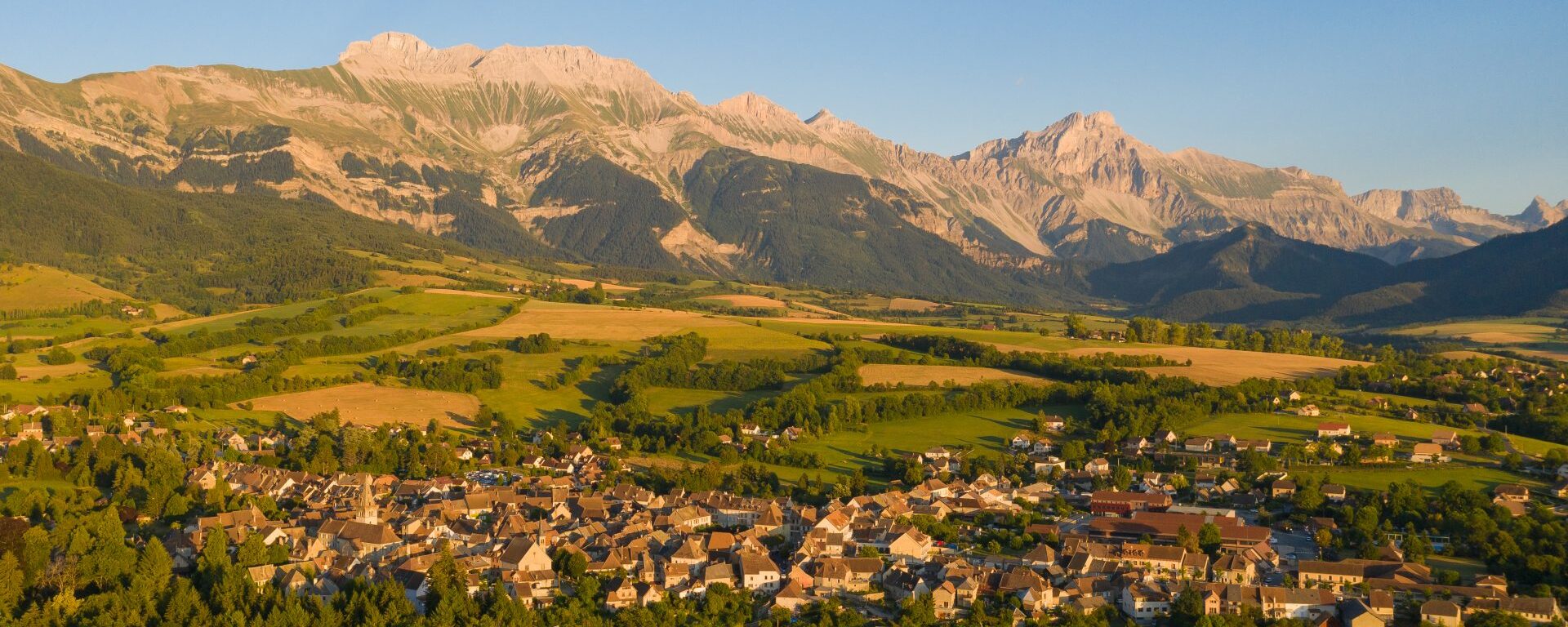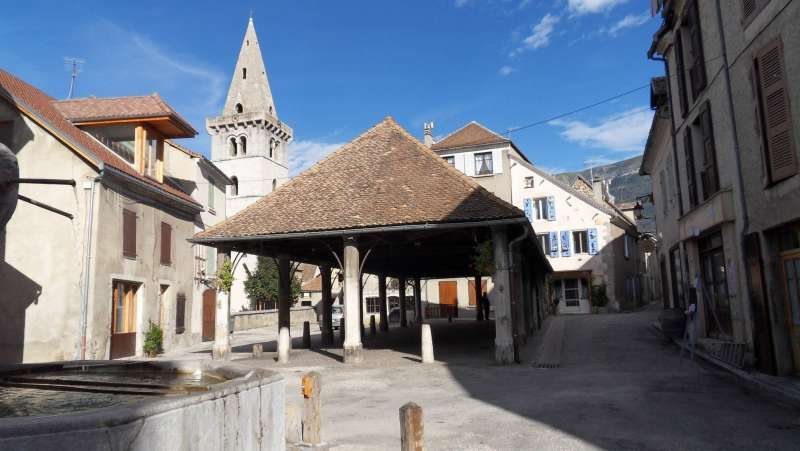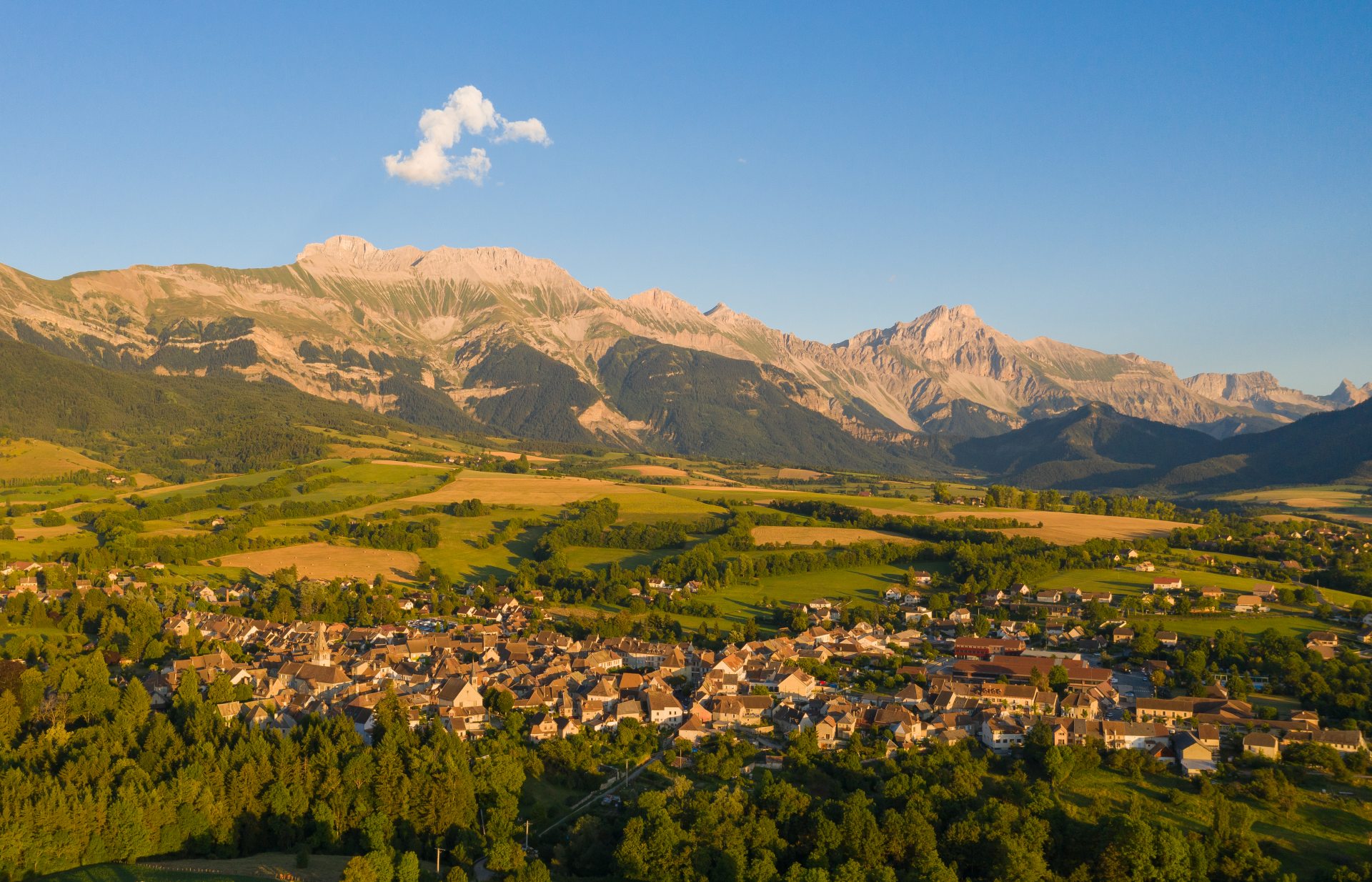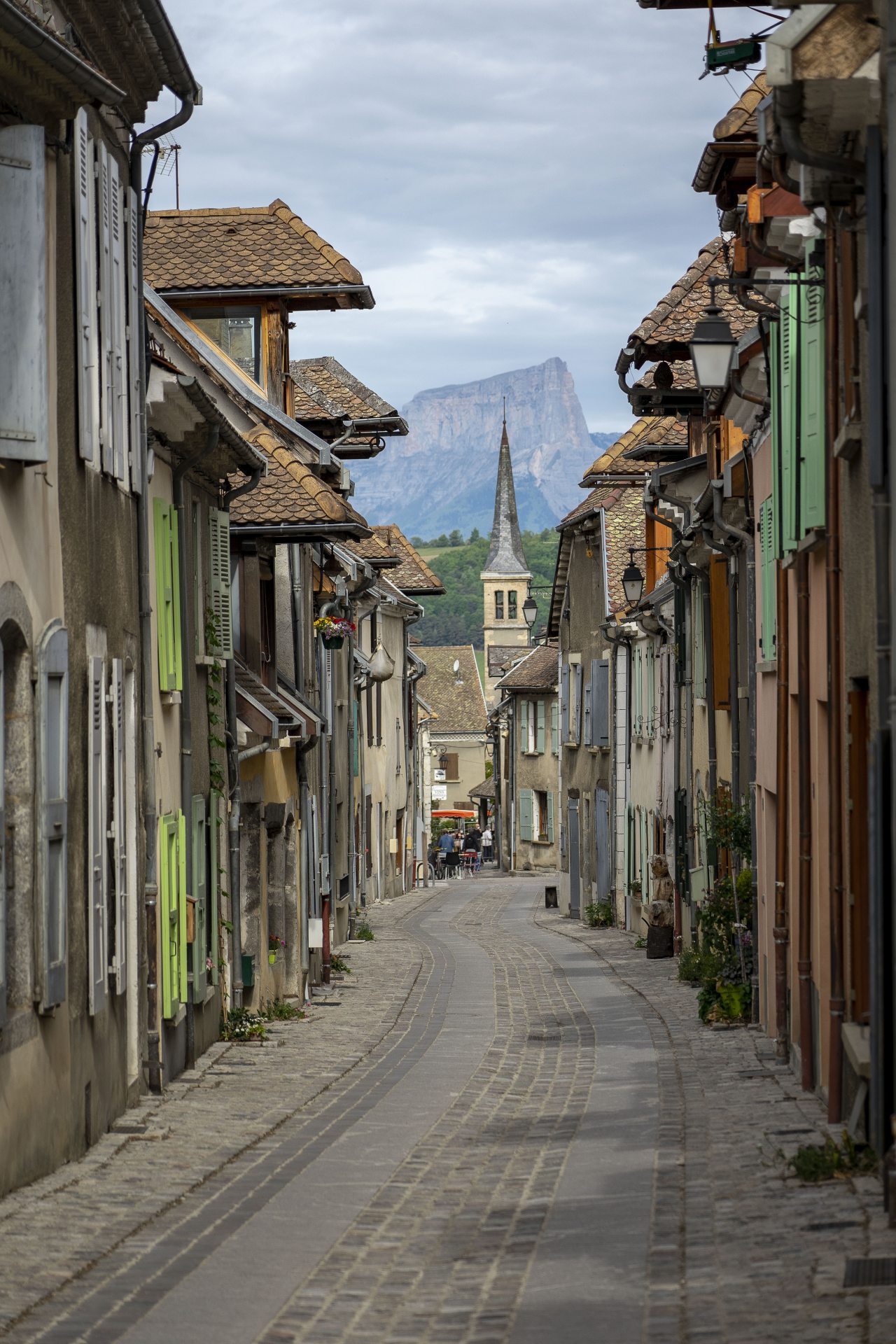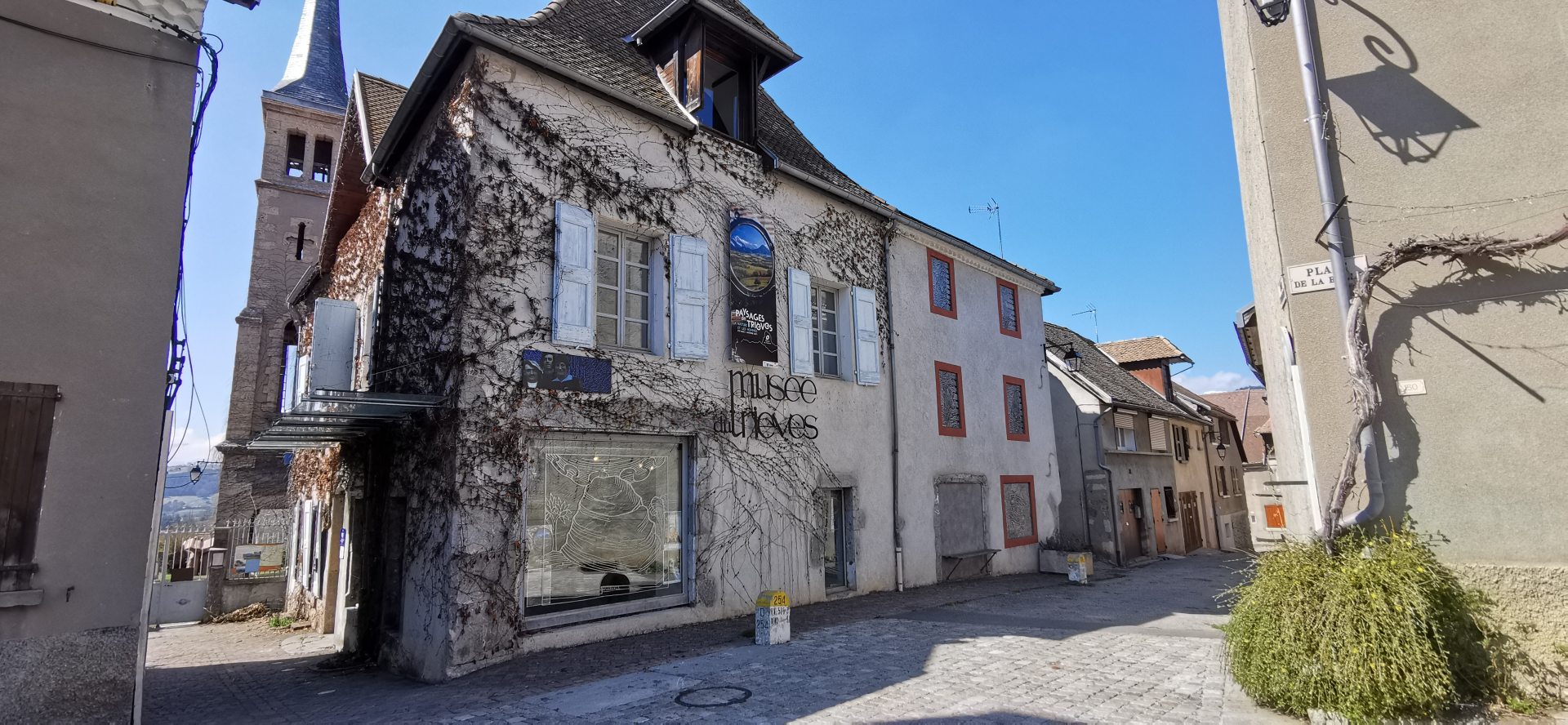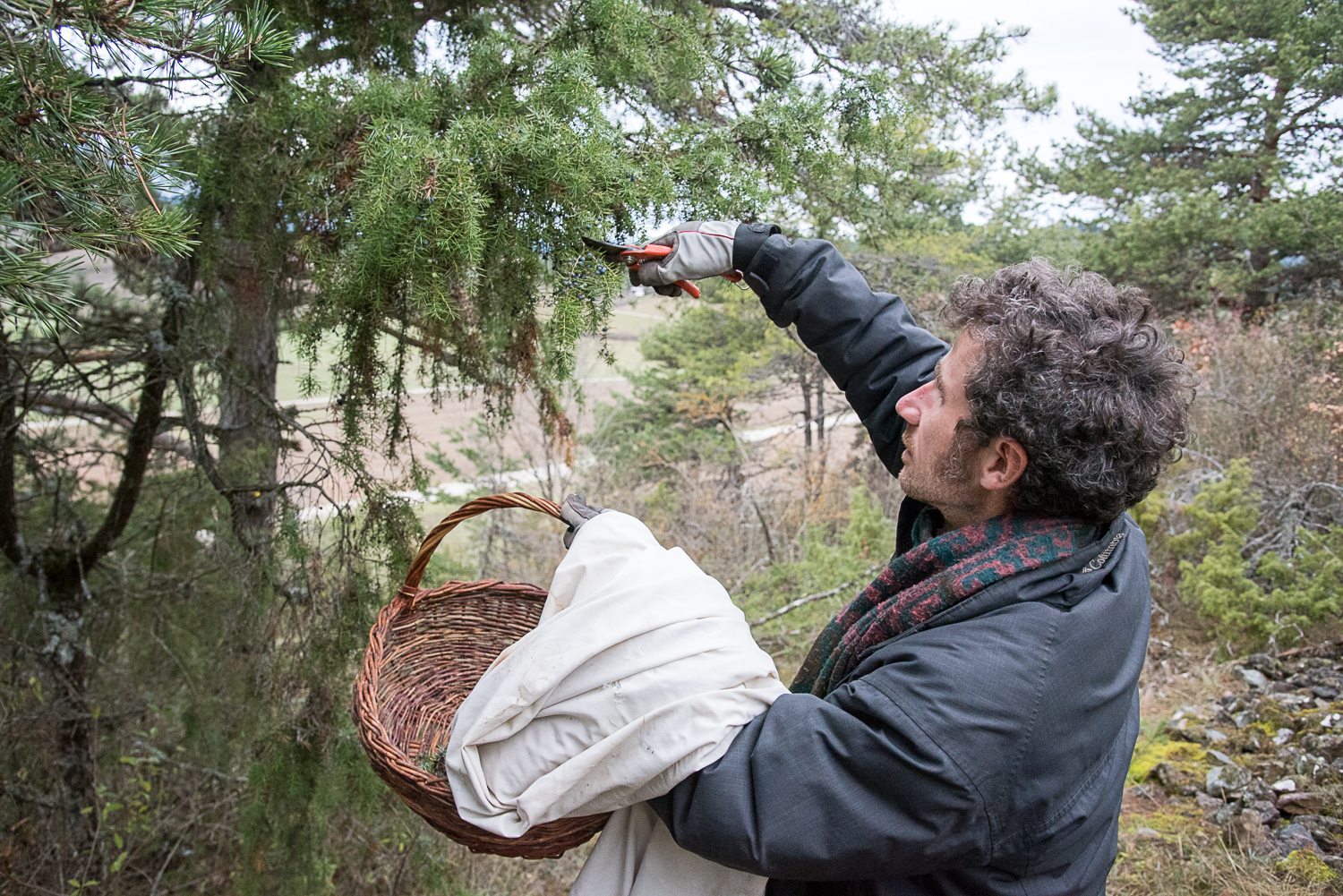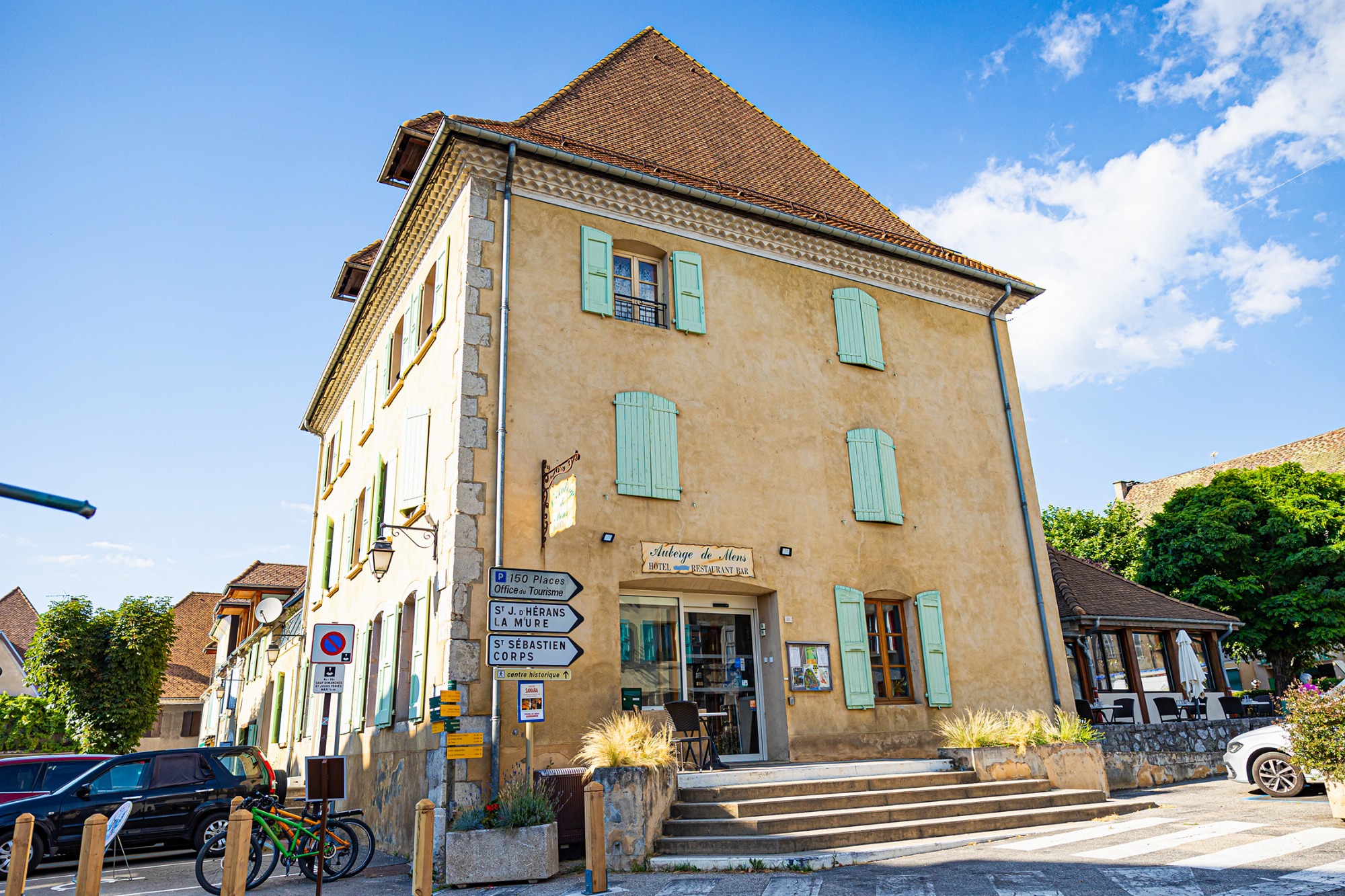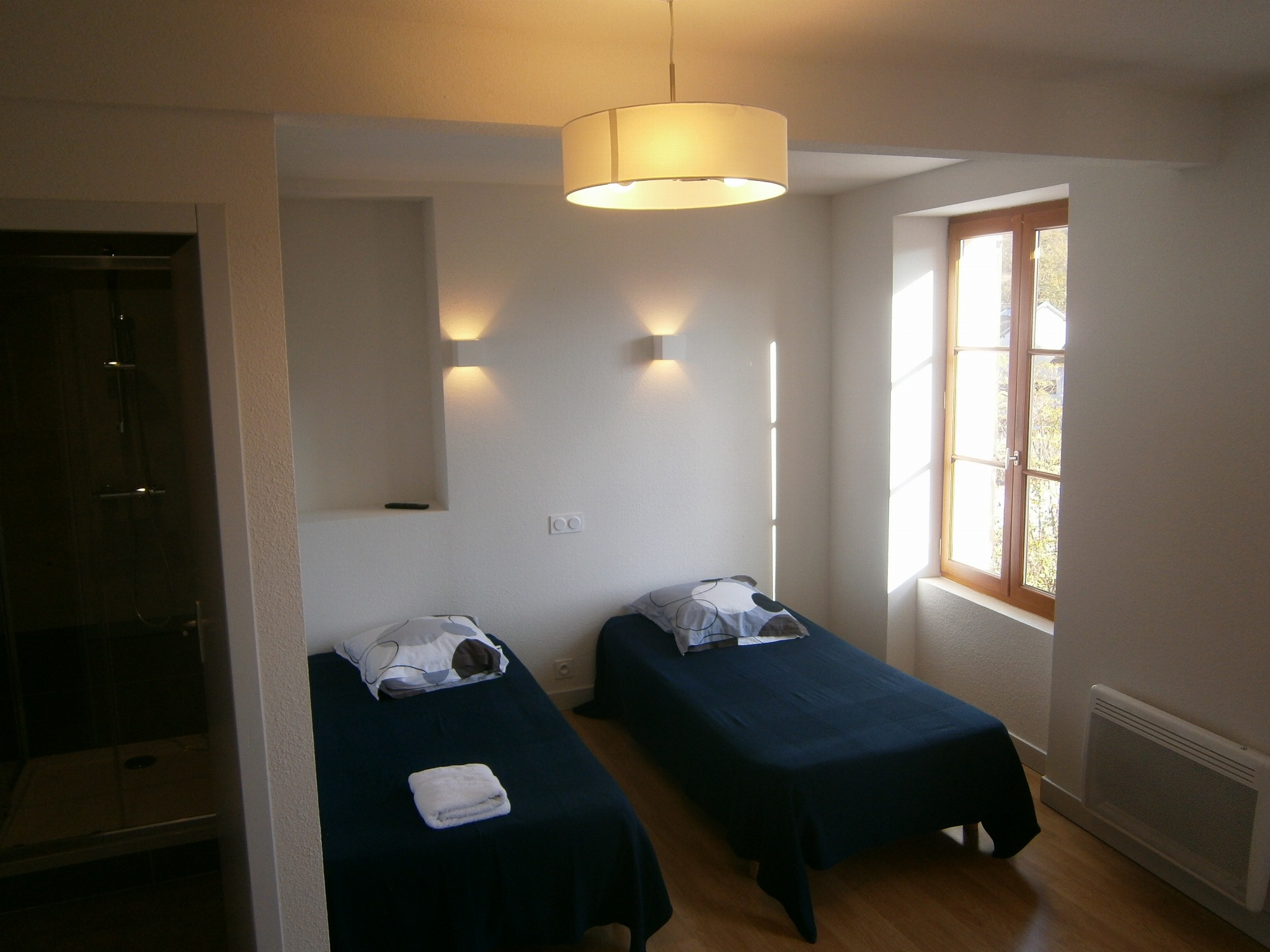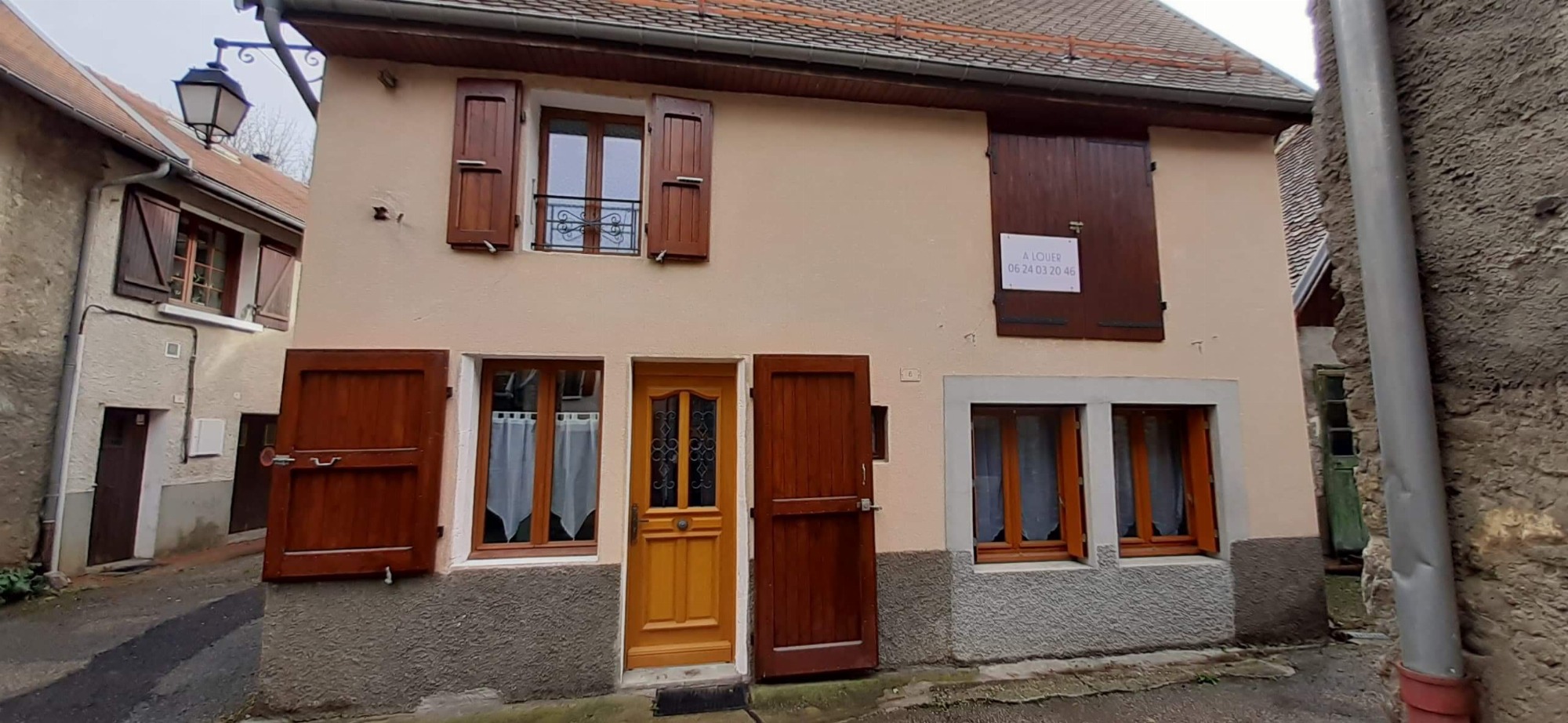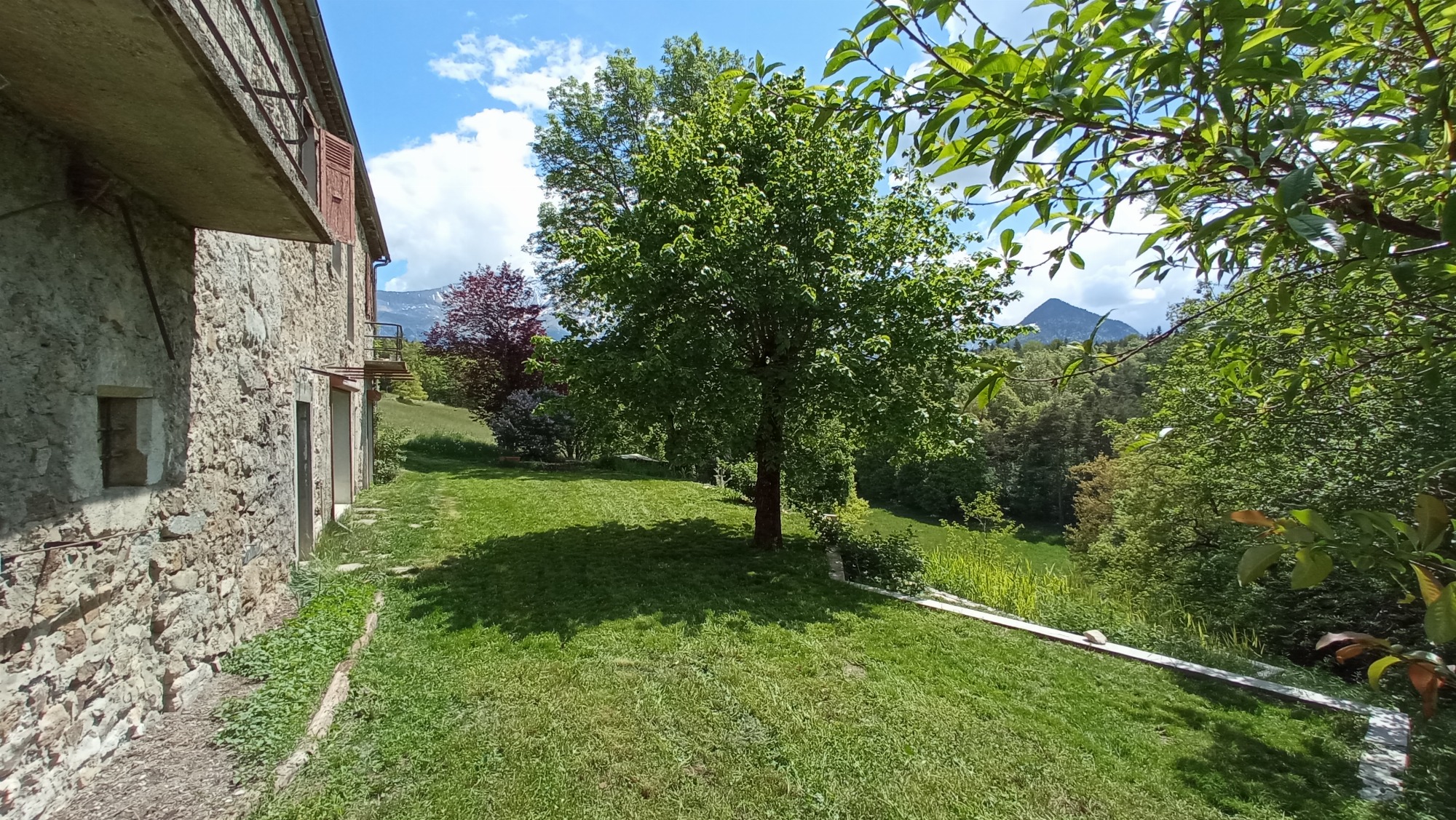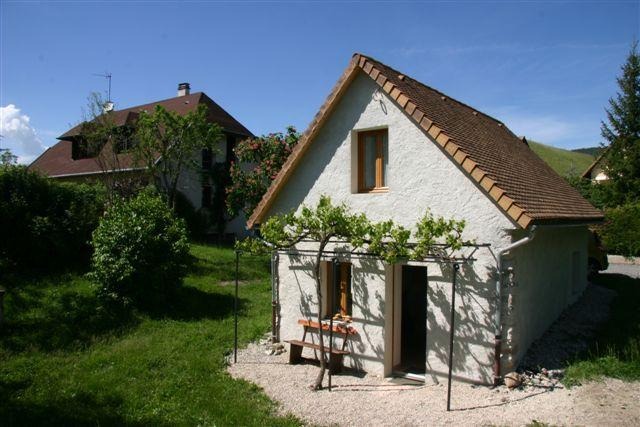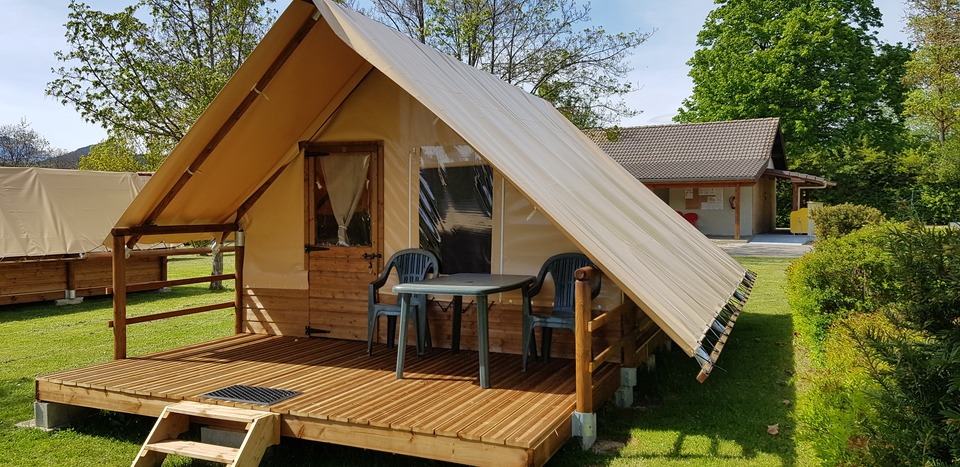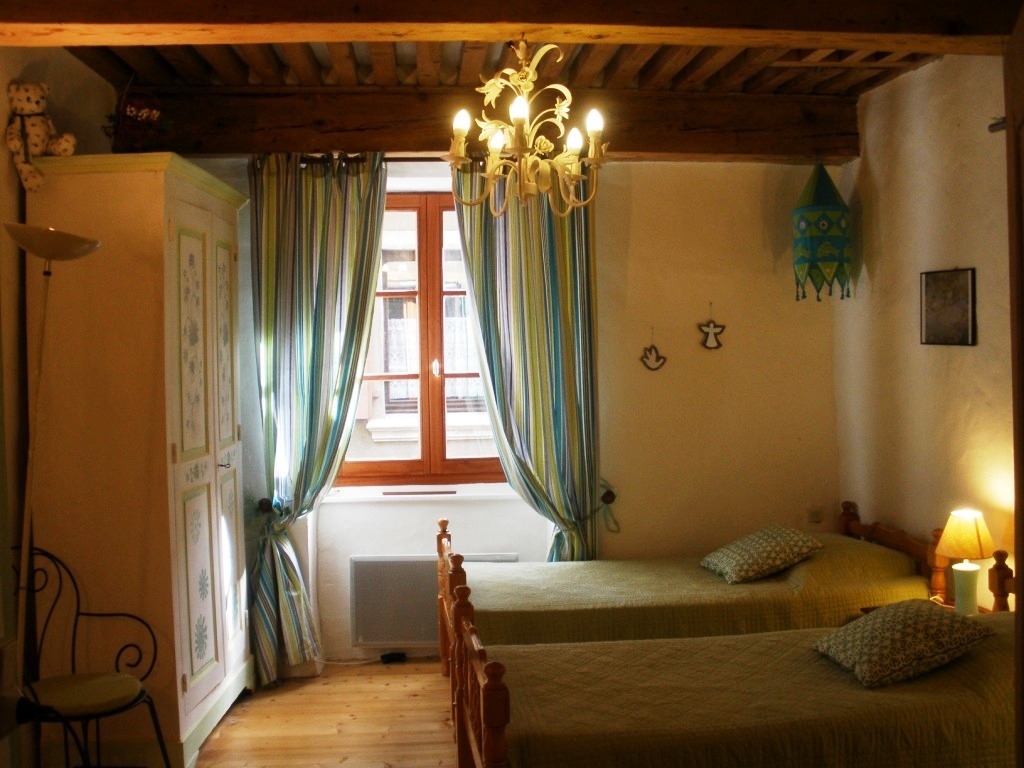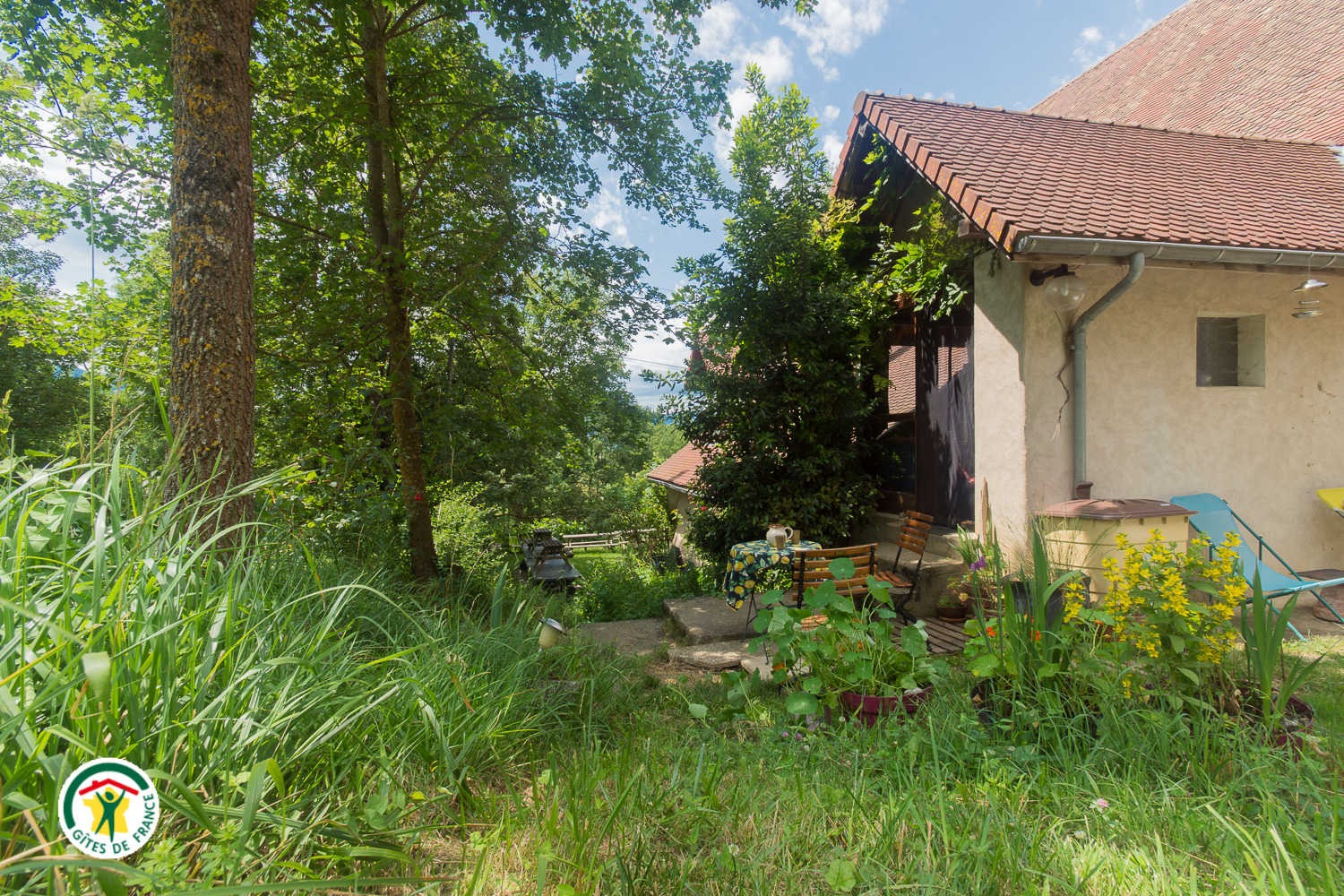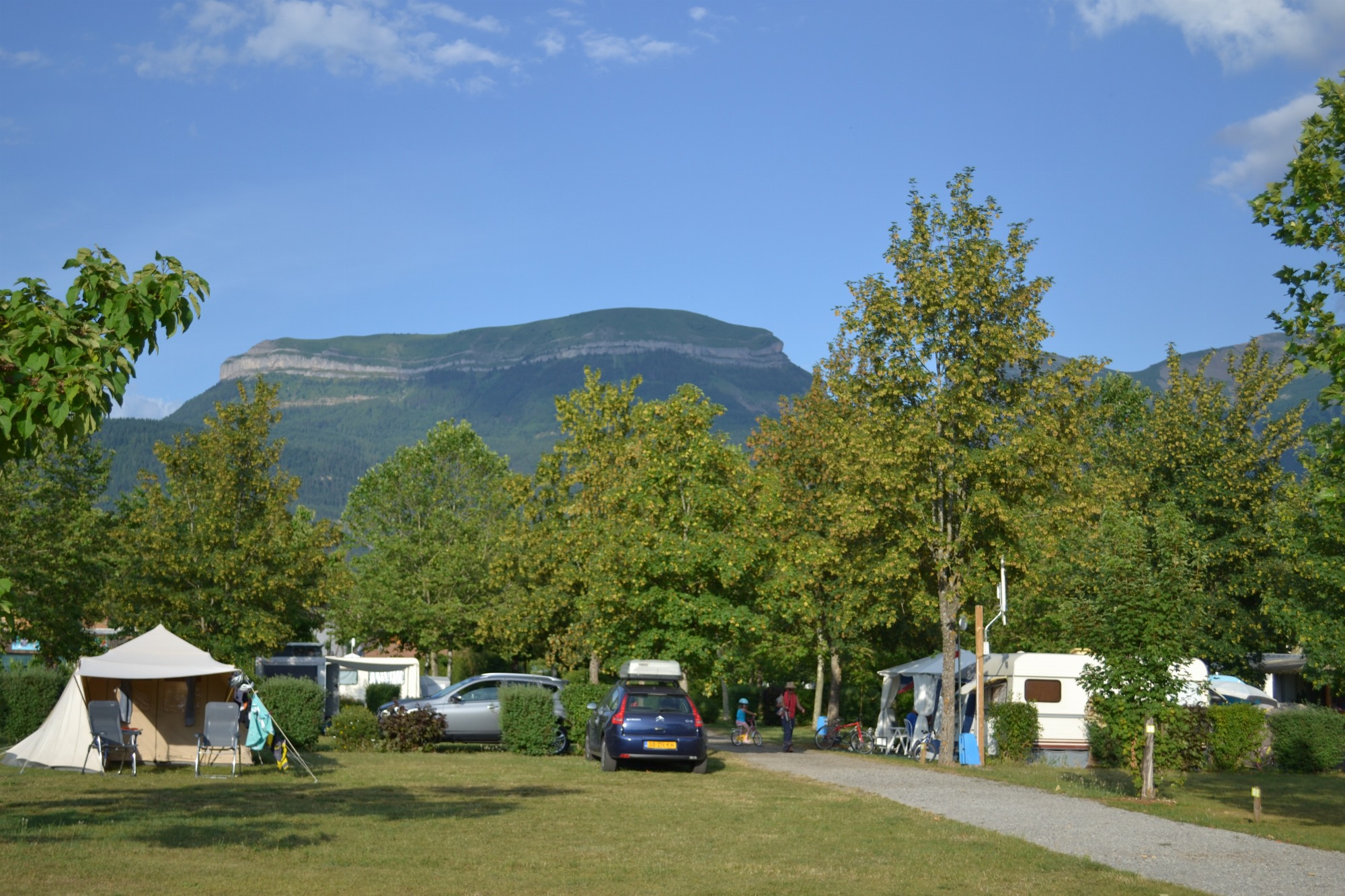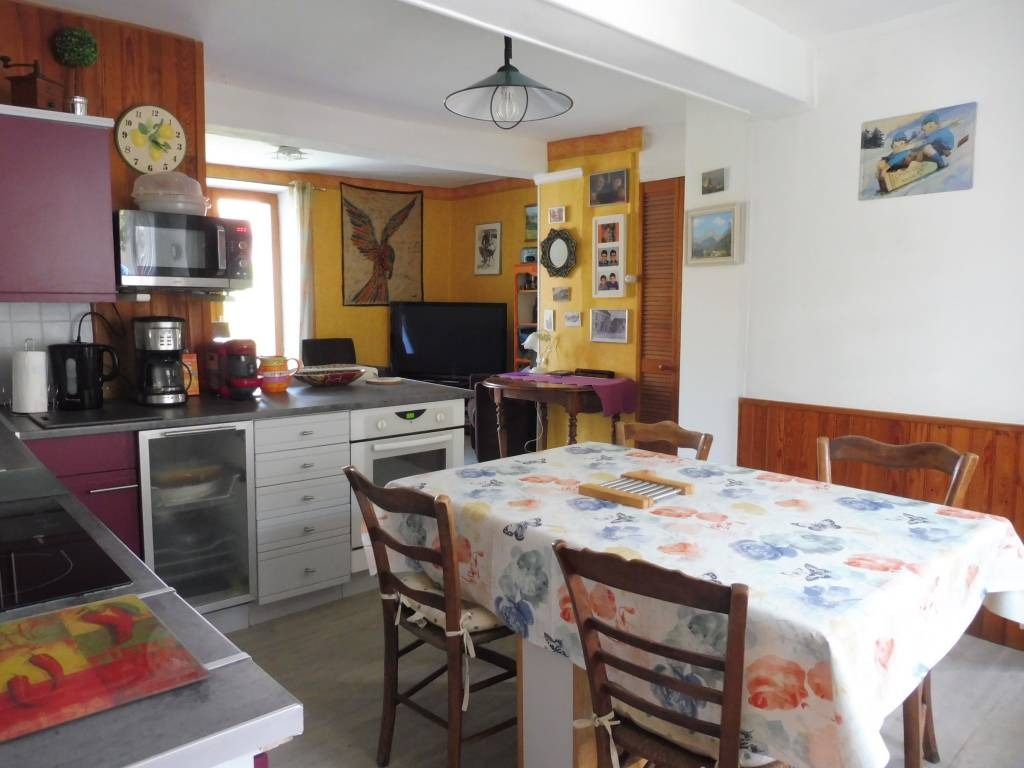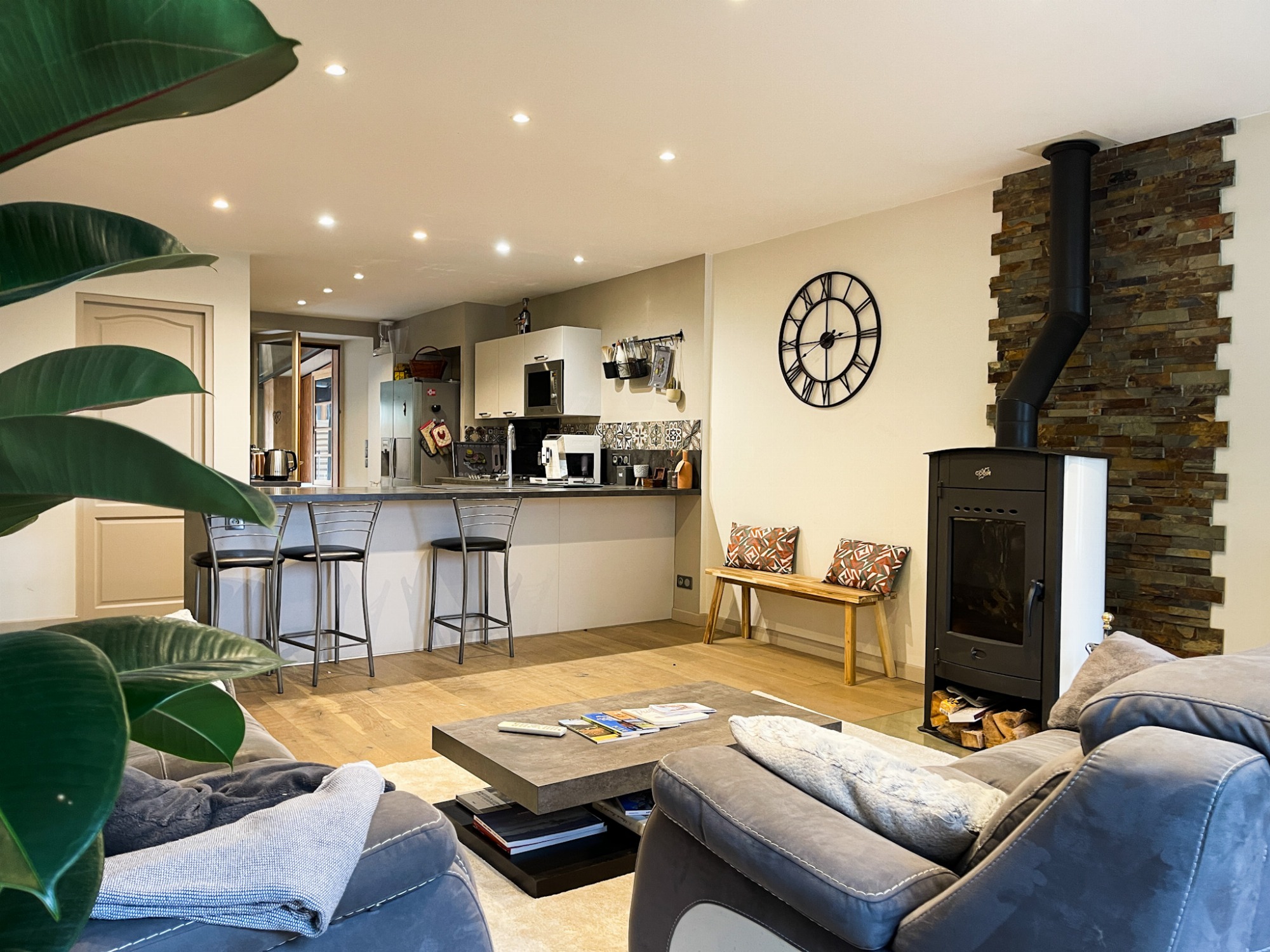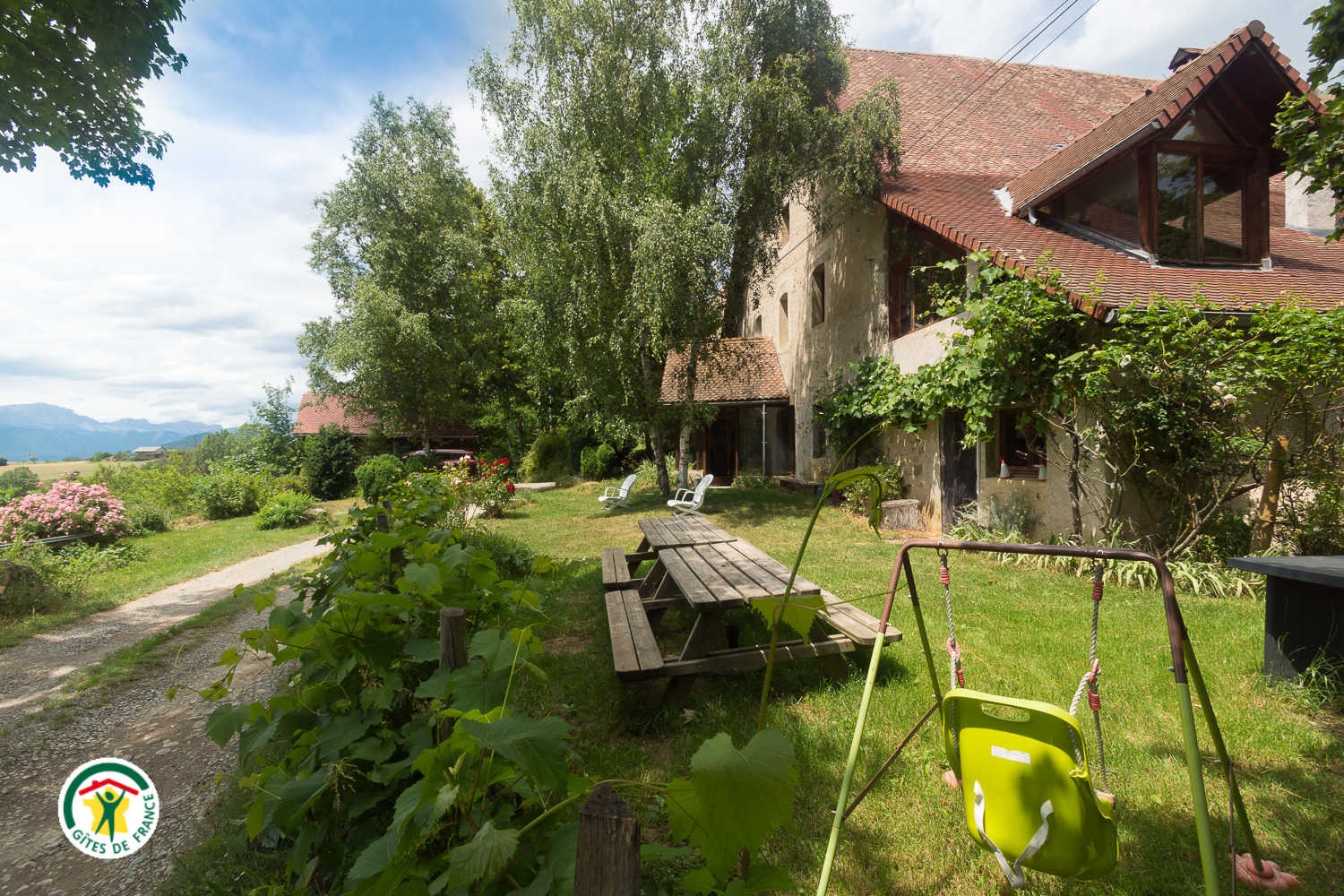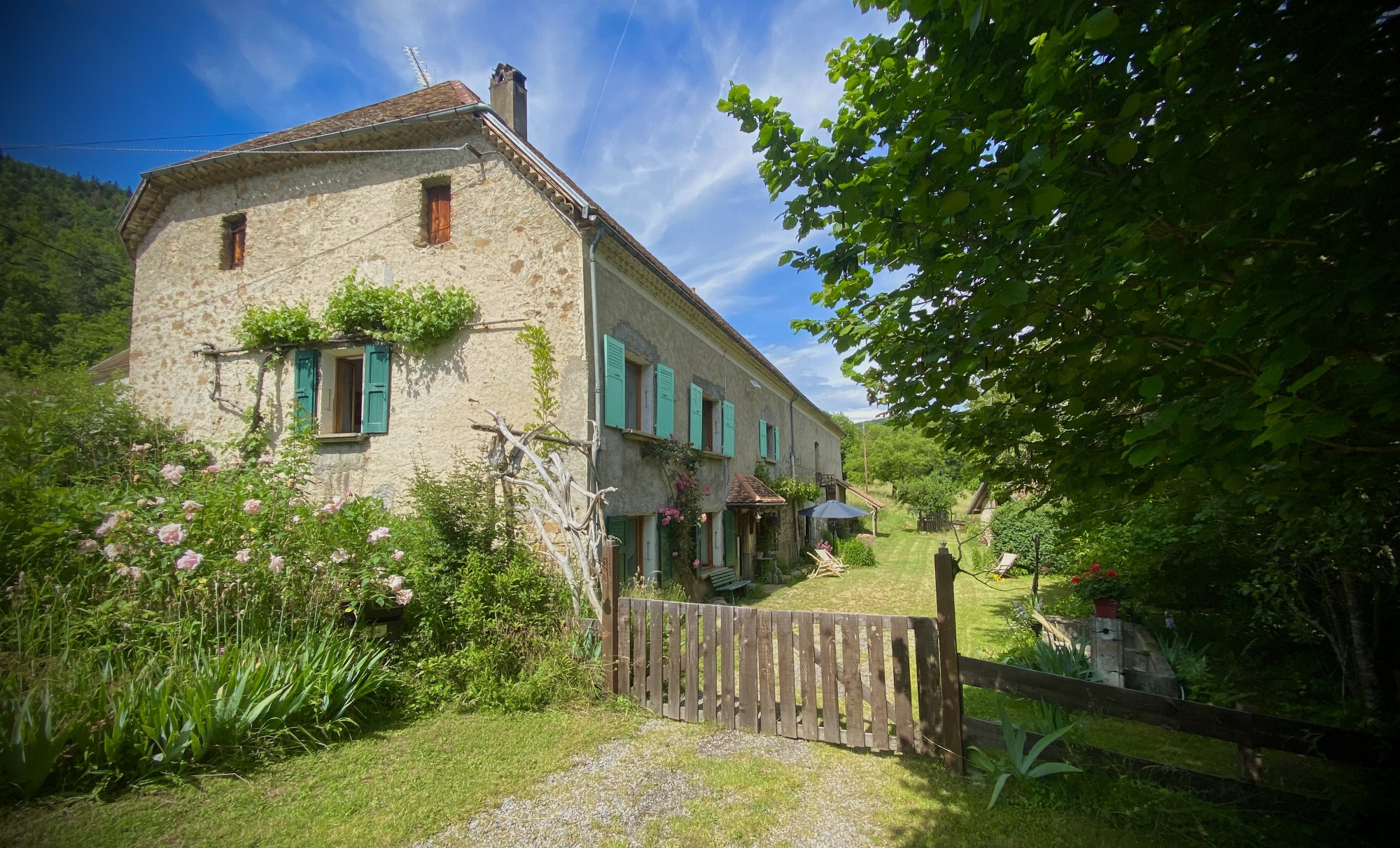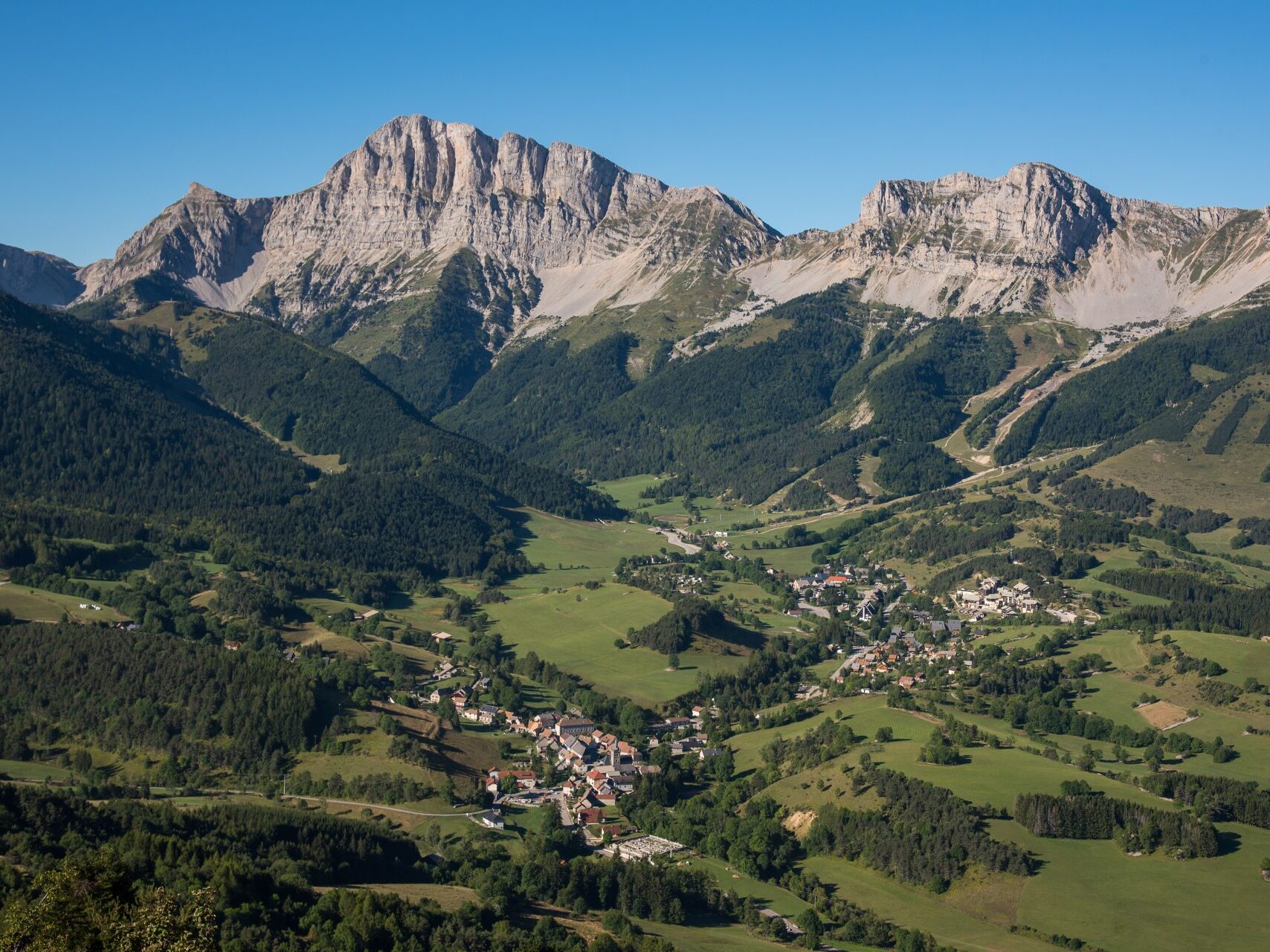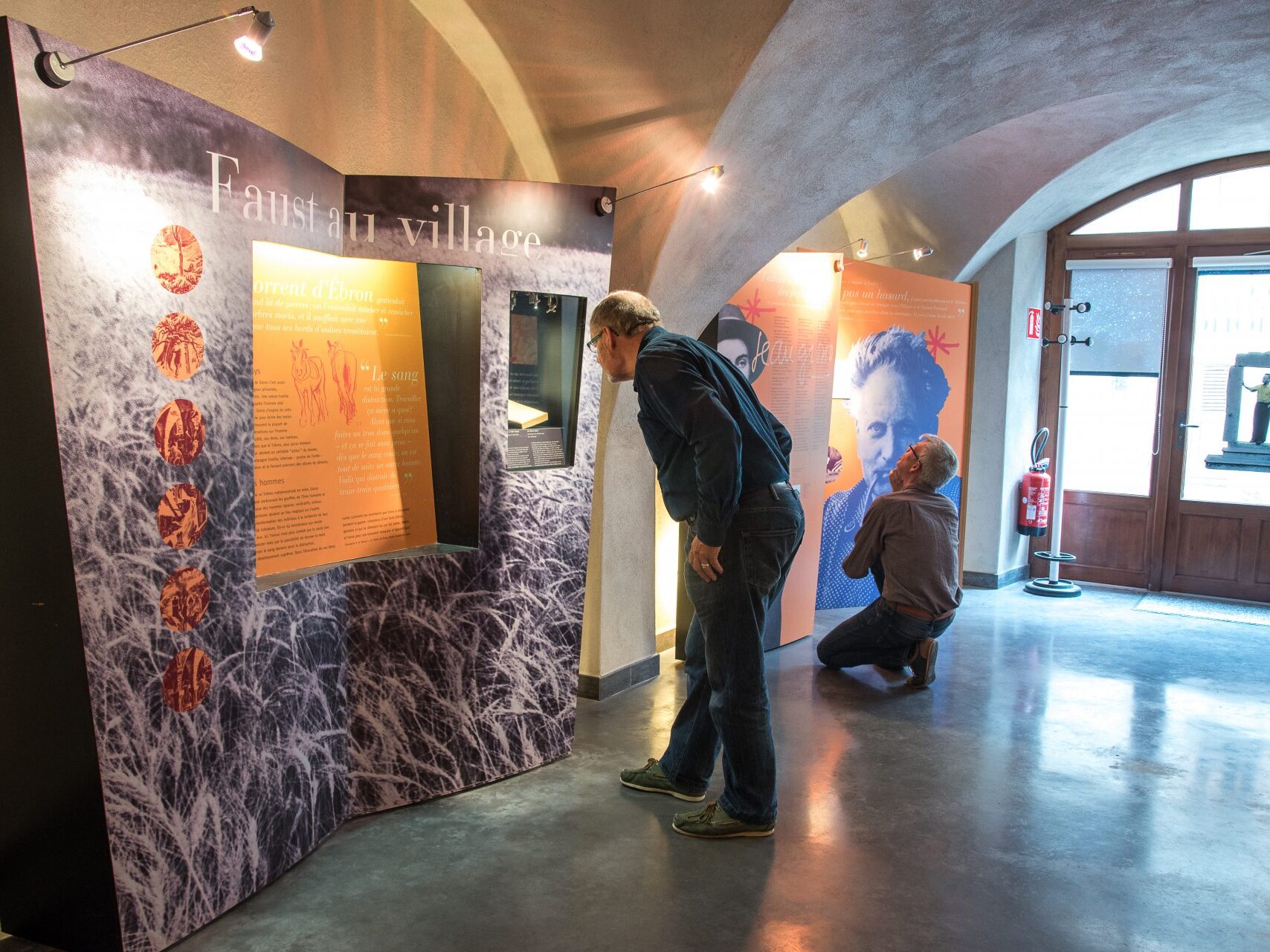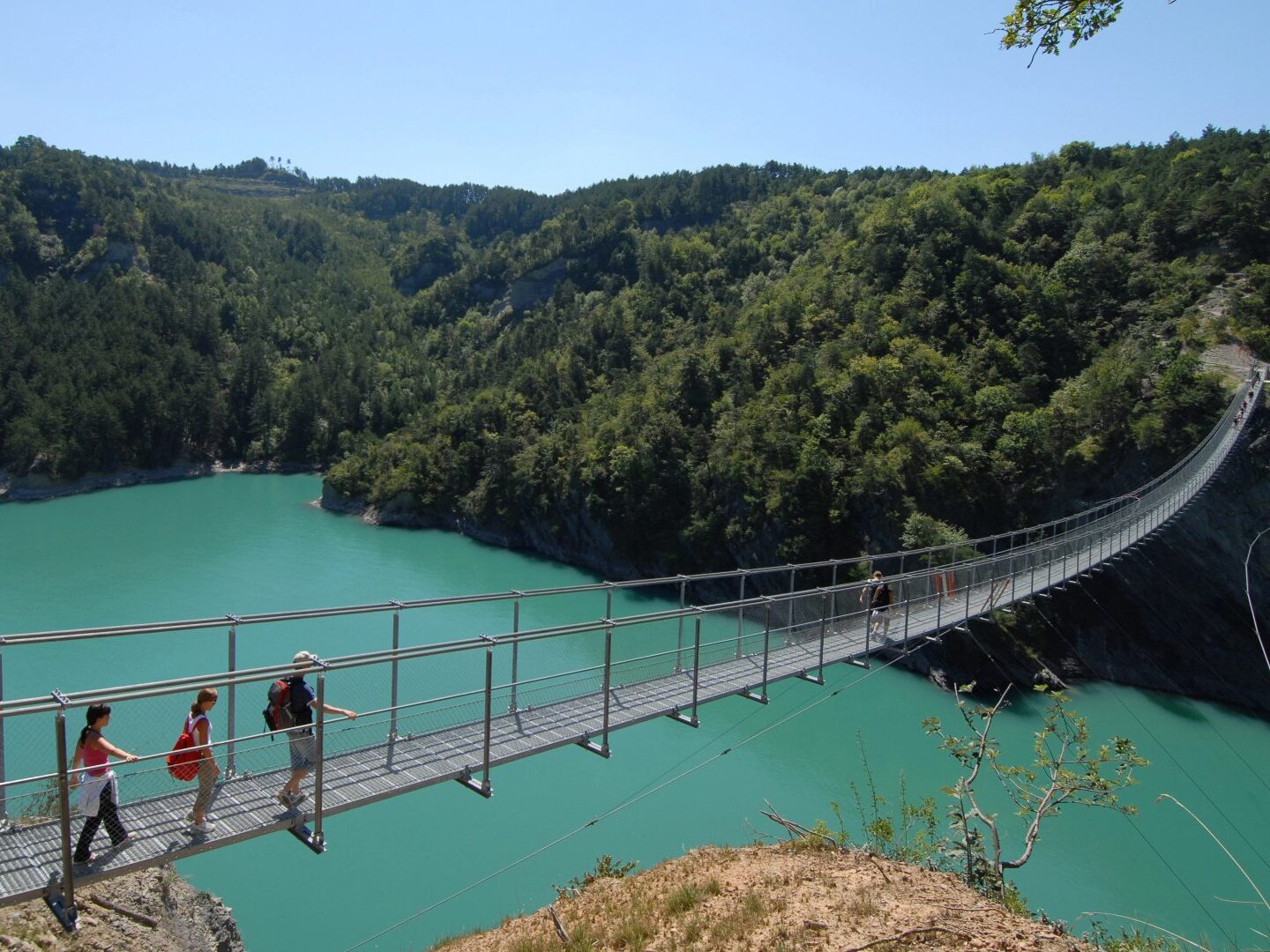Mens en Trièves is a small town at the foot of the Châtel mountain (also known as Bonnet de Calvin). The historic centre and its cobbled streets are home to a host of festivals, with street art rubbing shoulders with the more traditional local arts.
Discover mens
A guided tour of the historic centre with the Friends of the Museum of Trièves reveals many of the village’s past secrets. Stroll through the village narrow streets, meet the artisan collectives at the old silk factory, l’Usine de La Soie and at the shop La Fabrique du Trièves, stop by the bookshop La Palpitante, enjoy delicious local products and the “Bouffette“, a pastry speciality made only in Mens, and discover village heritage thanks to a fun orientation course for children or adults (maps can be found at Mens’ Visitors Centre) …all this makes for a great day out in Mens. Surrounding Mens, well-signposted hikes allow you to select a walking itinerary that suits your pace and to discover beautiful viewpoints over the whole of the Trièves.
A brief history
Mens village was established at the time of the Roman Empire, and from the very beginning it was a busy trading and market town where different trades and crafts were developed. This entrepreneurialist spirit and creative artisanship is the backbone of the village’s character today. In the 12th-13th centuries, the rural industries of hemp, wool and ironwork, and large cattle markets gave rise to an important economic life for the village and generated beneficial business relations with the southern regions of France.
a Protestant stronghold
In the middle of the 16th century Mens, driven by its merchants, almost all the inhabitants adopted the Calvinist Reformation. Lesdiguières, leader of the Protestant armies in 1573, found refuge there and made Mens one of his strongholds. A period of nearly two centuries of religious unrest then began, during which a large number of Protestant families went into exile (to Switzerland, Germany, and the Netherlands).
decline and renewal
Mens went through the Revolutionary period without any major difficulties, but the 19th century saw a slow decline in industrial activities and the installation of a silk factory at the end of the century did nothing to reverse the trend. By middle of the 20th century the rural exodus bhad begun to affect Mens, which until then had been relatively preserved by its position as a large, central rural marketplace.
Now with new eco friendly farming methods, green and family tourism promotion, the aspirations of incoming inhabitants for a ‘tree change’ move to a natural and protected environment, with improved communications and transport infrastructure – these are today the engines driving new development in Mens, now nominated “small town of tomorrow” by the French government.

